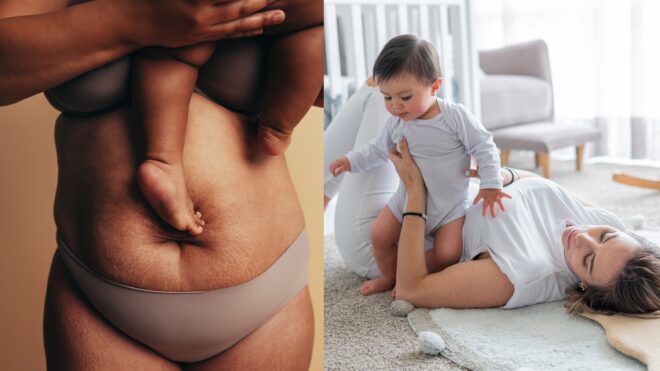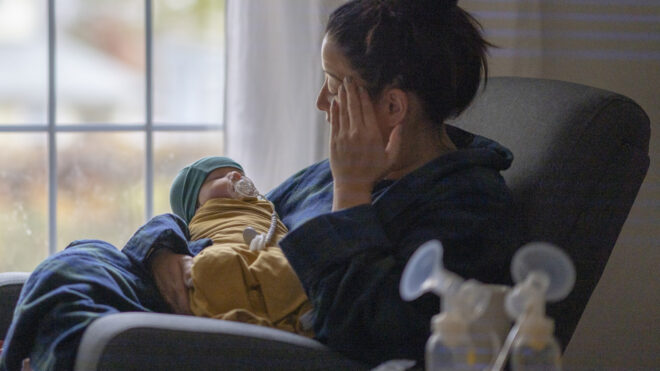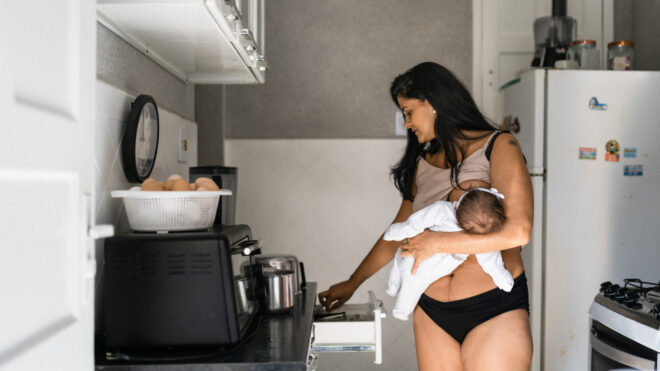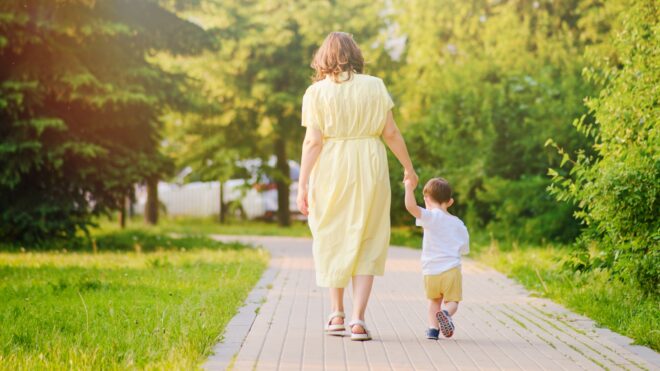
My husband and I are what I would consider a fun couple. We’ve always loved to travel, drink with friends, play games, and go out, which I think is what’s stopped us from talking too much about having kids at first.
We loved our life and our freedom — we felt no need to change it. Until one day we did. Maybe mostly I did, but he was totally on board when I poured my heart out on how I suddenly longed to have a baby of our own who was along for the ride of our fun life.
I was turning 28, and it was like a switch turned on in my brain — time to have a baby!
It wasn’t long after our discussion when my jaw about hit the floor; two pink lines stared at me from the bathroom sink. I don’t think it matters how much you plan for it, the moment of realizing "I’m pregnant" is one of the biggest shocks of your life. I sat on the bathroom floor, processing, and literally googled "what to do when you find out you’re pregnant." Looking back now, I think it foreshadows where a lot of my postpartum depression came from — the feeling of having no idea what to do (and turning to Google).
Pregnancy hit me like a semi-truck.
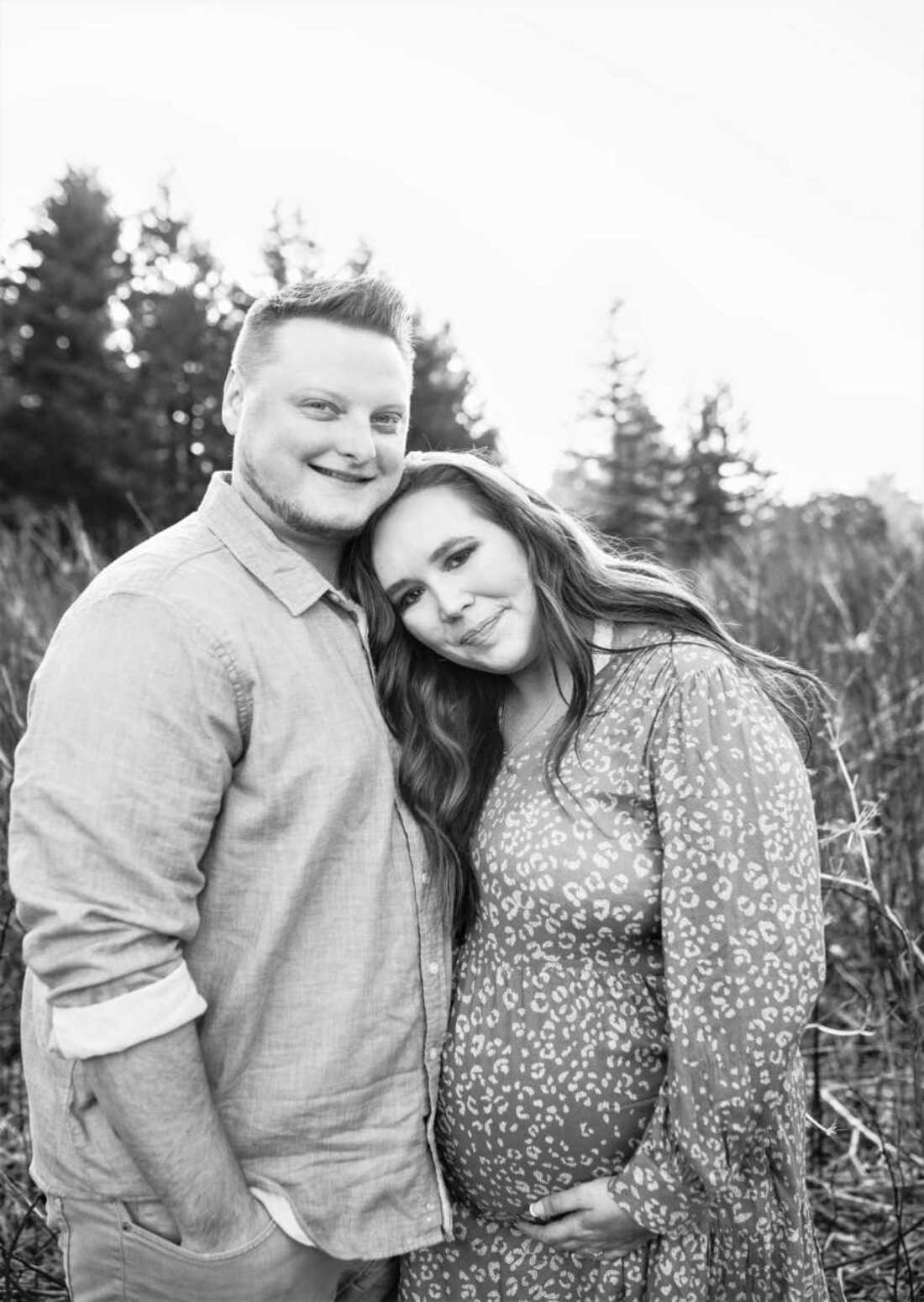
At six weeks pregnant, I felt nauseous for the first time. I thought, "Aw, I actually feel pregnant!" as if this were something to be excited about. At about six weeks and three days, the excitement had vanished, and misery quickly set in. The nausea and vomiting did not stop till about 22 weeks and landed me dehydrated in the emergency room at 17 weeks. It was during this time when I realized how I had taken my physical health for granted.
Feeling sick day in and day out took a toll on my entire life.
My work as a teacher suffered. I was unable to eat much of anything, let alone healthy foods. Working out was not an option and my mental health suffered because of all of this, but I still was not depressed. I had the typical anxiety every pregnant mom gets, and physically I felt terrible — but not depressed. Thankfully, the second half of my pregnancy went a lot smoother and besides the growing tummy, I felt a lot more like my old, healthy self. The time passed quickly until the last month. I’m sure every mom would say the same. Every day felt like a year.
My due date came and went and I was beside myself.
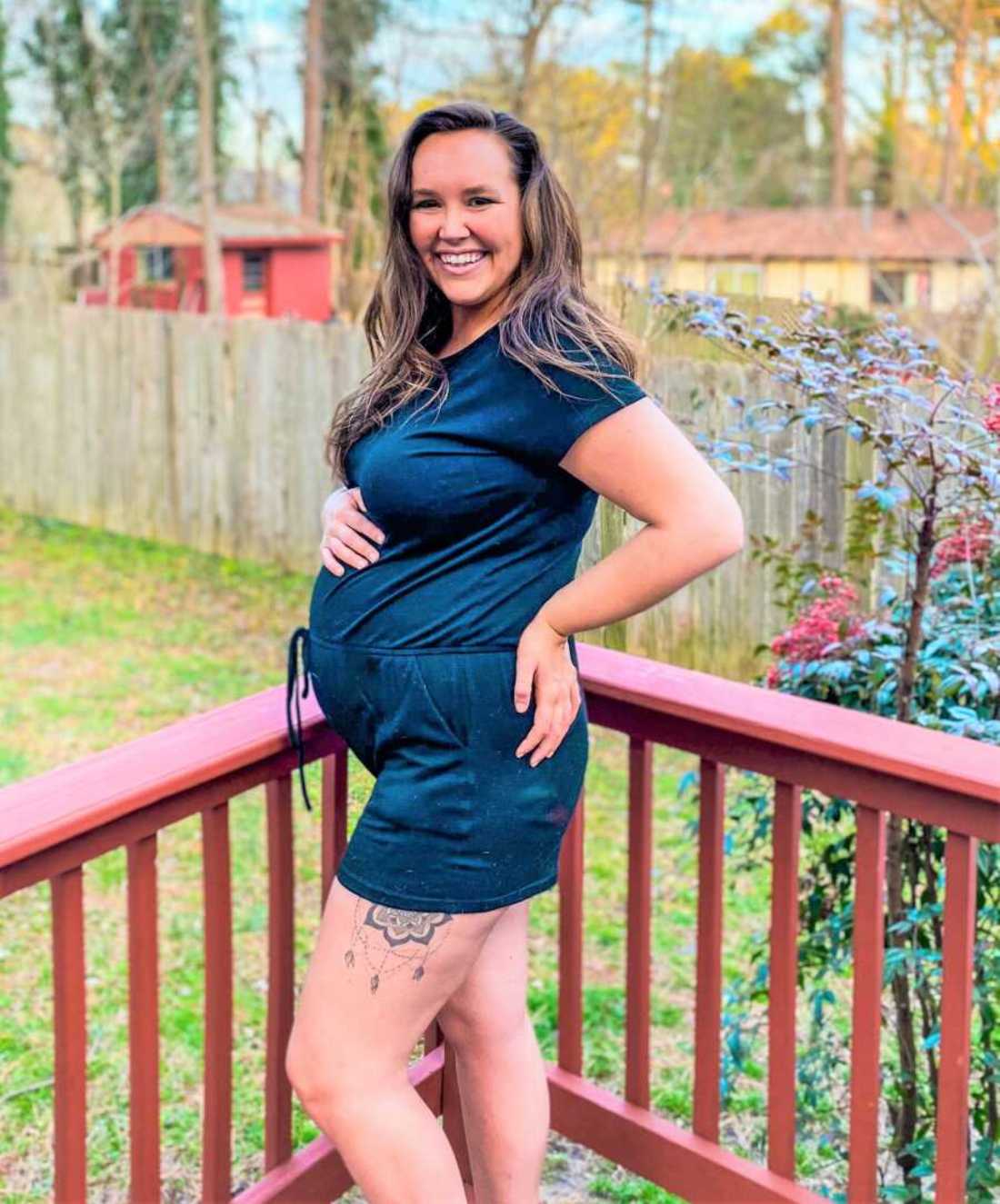
For some reason, I had never imagined myself going past my due date. At this point, every day felt like an eternity! At 41 weeks and one day, our baby girl still showed no signs of coming soon, so we went to the hospital for our scheduled induction. At 10 p.m. on induction day, the nurse handed me a pill to medically induce contractions. I was going to have to take it every four hours until things got going.
My husband and I attempted to get some sleep before she woke me up at 2 a.m. to take my second dose.
At this point I had experienced some cramping, but nothing unbearable. By 3 a.m. — an hour after my second dose — contractions were coming on regularly and STRONG. It was a pain I had never felt before. It’s hard to explain, but it felt like my entire body was seizing. The pain made it extremely difficult to breathe. The intensity had me grabbing the bed rails so hard, my knuckles were white.
There was no way I could move to gain any sort of relief from the pain running through my entire lower body.
They didn’t last long, but I spent the time in between panicking in anticipation for the next one. At one point, I had to go to the bathroom and was trying to run there and back, afraid of being caught out of bed when the next one came and having nothing to brace myself with.
I called my mom, an ex-labor and delivery nurse, crying asking if I should get an epidural "this early."
The nurse had tried to check my dilation and I could not sit still enough for her to really tell, but she seemed to think I was still only dilated about 1 cm. A huge wave of relief came over me when my mom said, "Get the epidural. I’m on my way." The placement of the epidural was also not a fun process, but the best thing I ever did, because I was able to labor calm and painless from there. Twenty-three hours after I had taken the first pill, I was ready to push. I did so for about 30 minutes and my first born daughter, Savannah Margaret, was born.
The first month of Savannah’s life, I was in a state of bliss.
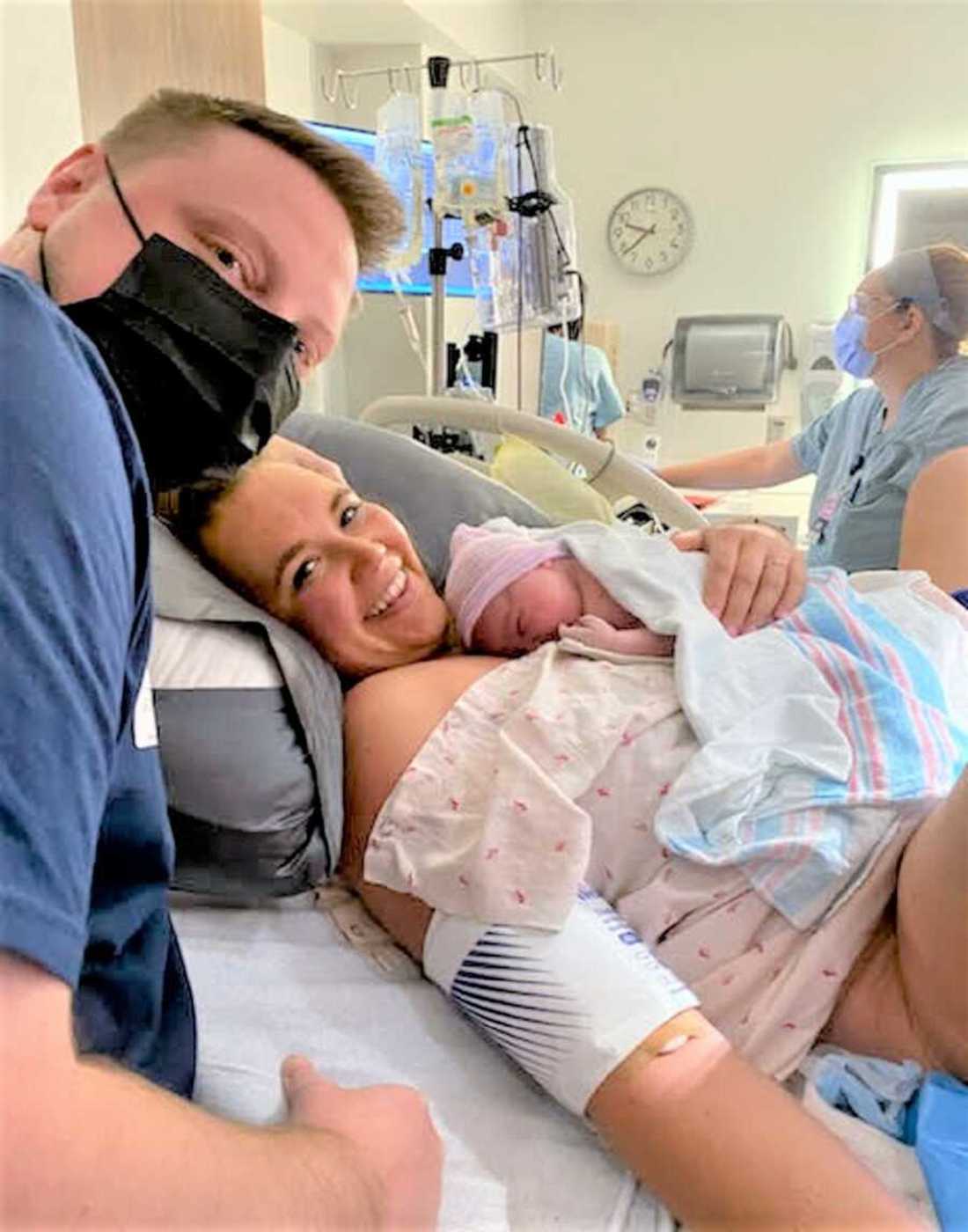
We had our parents staying with us on the weekends helping out and letting us catch up on sleep. I was in heaven holding my baby in my arms and thrilled to not be pregnant anymore, but I was crying constantly. The tears had all sorts of reasons: unrelenting joy, sleep deprivation, excitement for the future, fear of something going wrong …basically any reason you can think of, I cried about it.
At about the 1-month mark, reality started to hit.
My baby was crying constantly. It felt like if she wasn’t eating or sleeping, she was crying. In turn, I was also still crying constantly. Taking care of this crying baby on my own while my husband worked wore me down mentally. My baby crying sounded like nails on a chalkboard to me. My entire body had a response to it. My legs swayed, my arms bounced, my brain felt frantic. I thought I was crazy at first, but I later learned this is simply biology. Mothers are programmed to respond to their crying babies.
As the weeks went by, I felt my mental state declining slowly.
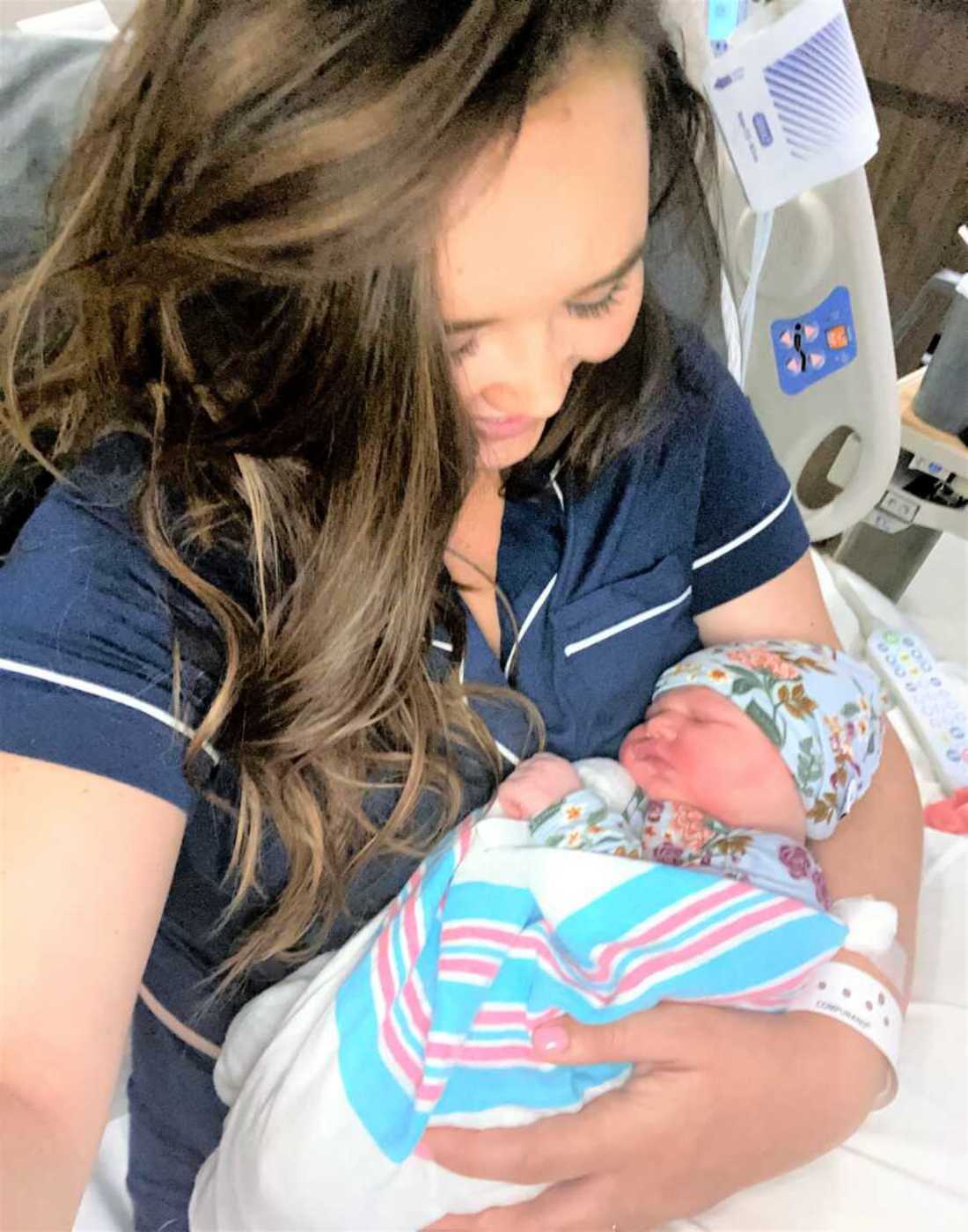
How will I leave her in the care of someone else when I go back to work next month? What if she’s constantly in pain and I’m not doing the right thing to help her? Why is she waking up several times a night again? Is she allergic to my breast milk? I had a million questions and zero answers. All of this thinking, wondering, and not knowing seriously took a toll on me.
Overall, I’m a generally confident person.
I believe in my skills when it comes to my job, my relationships, and more, but suddenly I felt like I was failing when it came to motherhood. I had zero confidence, constantly second-guessing myself, self-conscious of all my actions and decisions around others, intrusive thoughts, and more all resulting in my anxiety level turning up to 10. I don’t remember the details of how I got so low.
I know it wasn’t overnight, but it happened pretty quickly at the same time. As present as I thought I was, those newborn days are so blurry. I cried a lot and could only assume it was related to hormones and "baby blues" typical for newly postpartum mamas.
At one point, I realized the crying was not slowing down, and there were a lot less tears of happiness and emotional overload, and a lot more coming from emotions like pure sadness, dread, and complete overwhelm.
I hit my breaking point on my 29th birthday.
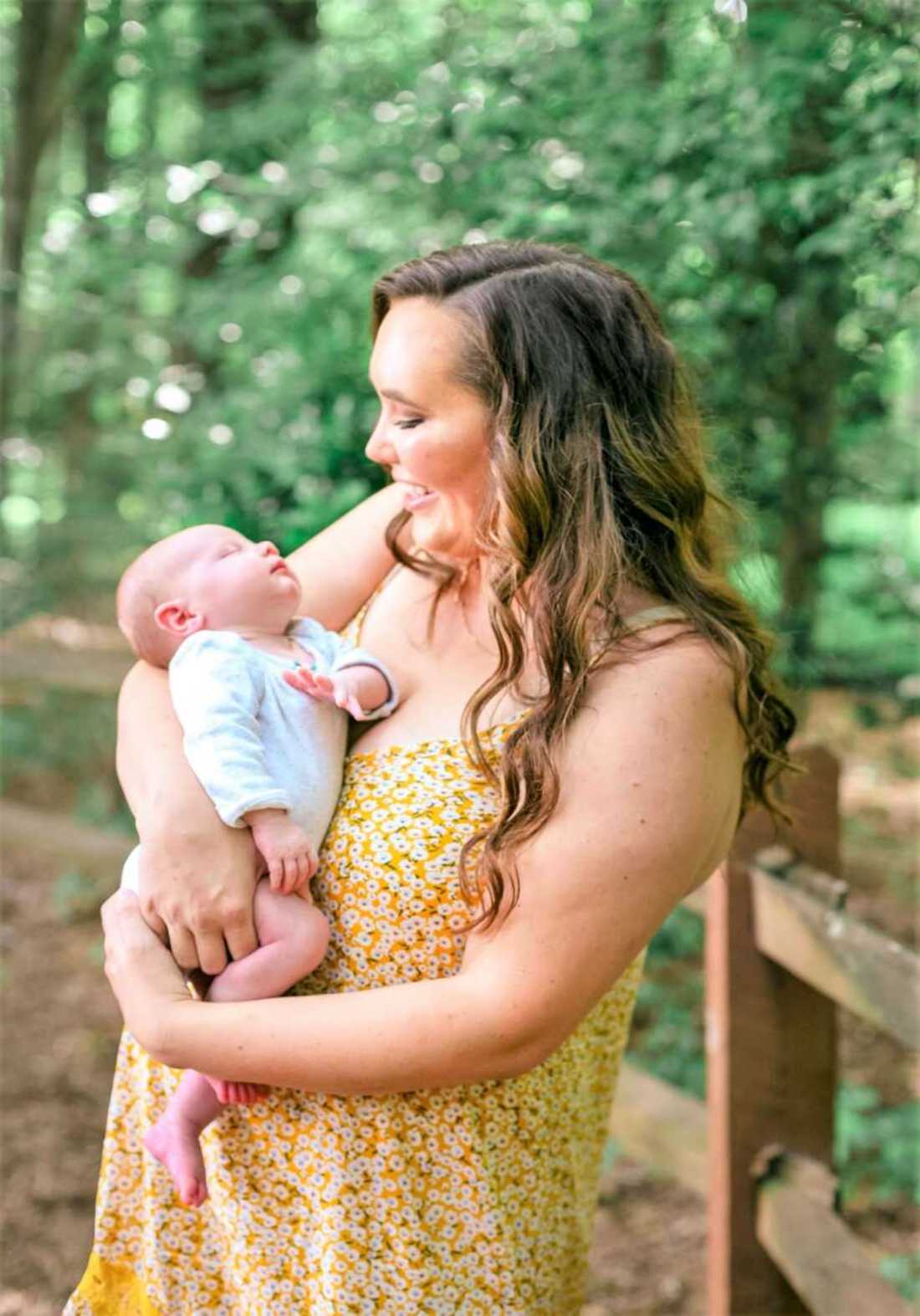
My brain was spiraling, and I couldn’t stop crying. I felt so sad and miserable with no true explanation why. My baby was 2 1/2-months-old. She was crying and crying and nothing I did got her to stop.
I remembered all the times I heard, "When it’s all too much and you’re feeling like you could hurt yourself or your baby, put them in a safe place and walk away." I remember thinking I will never happen to me, and then crying harder when I realized it was happening in this very moment. Since she was so little and immobile, I placed her on the couch like we always do, screaming her head off, and ran outside.
It was the middle of summer. The sun was shining like every other day. The horse next door peacefully grazed on grass as usual, birds were chirping, and there was a slight breeze. Everything appeared calm and normal, but the inside of my head was raging. I felt physically dizzy. I laid in the grass and cried hard.
I remember feeling so conflicted in finding the right balance of taking enough time to pull myself together, and not taking too long away from my poor crying baby.
I sat up, took a few deep breaths, and while I still felt shaky, I stood up and went back in to attempt a million different things again to console her. I was mortified to find her half hanging off the side of the couch, about to fall to the ground at any second. She had kicked and squirmed her body through her crying enough to make it to the edge, something I had no idea she had the capability of doing. I yelled out as I ran to her and scooped her up.
She quit crying immediately, which only set off another emotional response in me.
Nothing could help me. I was hopeless. At one point my husband came out to me standing in the kitchen crying. He said: "I’m so worried about you. This is postpartum depression. We need to get you some help."
I agreed, but deep down I couldn’t understand how anyone or anything could help me. We were supposed to go to dinner with my parents on the evening and I had to cancel. I had no excuses to give, so I tried to be honest by saying, "I just can’t do any of this right now."
Over the following months I hunkered down and started truly figuring out what I needed to heal my mind.
I got in touch with a therapist and started going biweekly, I made an appointment with a doctor and found the right medication for me, I worked with my husband to make sure we were carrying the workload at home equally — including a plan for tending to our baby at night when she wasn’t sleeping well so I could get more sleep. While there has been tough days along the way, none have been as painful as my birthday.
Today, I am seven and a half months postpartum, and feel as though I am officially on the other side of postpartum depression.
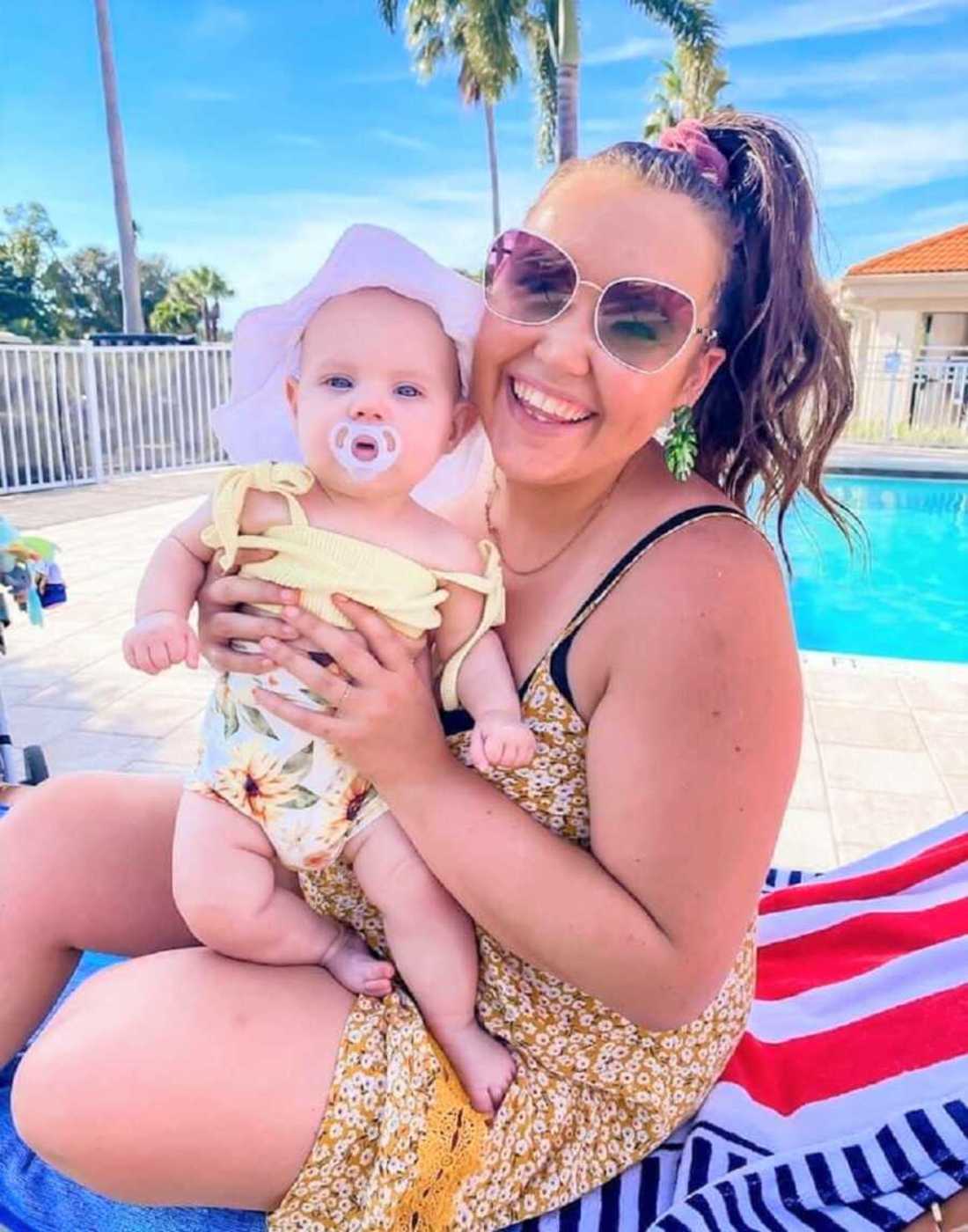
It feels like I have woken up from the constant comparison, worry, doubt, and insecurity. I believe therapy and anti-anxiety medication have been my true healers. Also time. As my baby gets older, she cries less and sleeps more. In turn, I cry less and sleep more. Something else I think has really helped me is unfollowing the many Instagram accounts I originally followed to guide me in new motherhood. A lot of those accounts give advice meant to help, but when it didn’t work for me, I became extra discouraged and thought I was doing something wrong.
It didn’t happen all at once, but now I’m working out, eating healthy, writing, reading, and listening to things I enjoy.
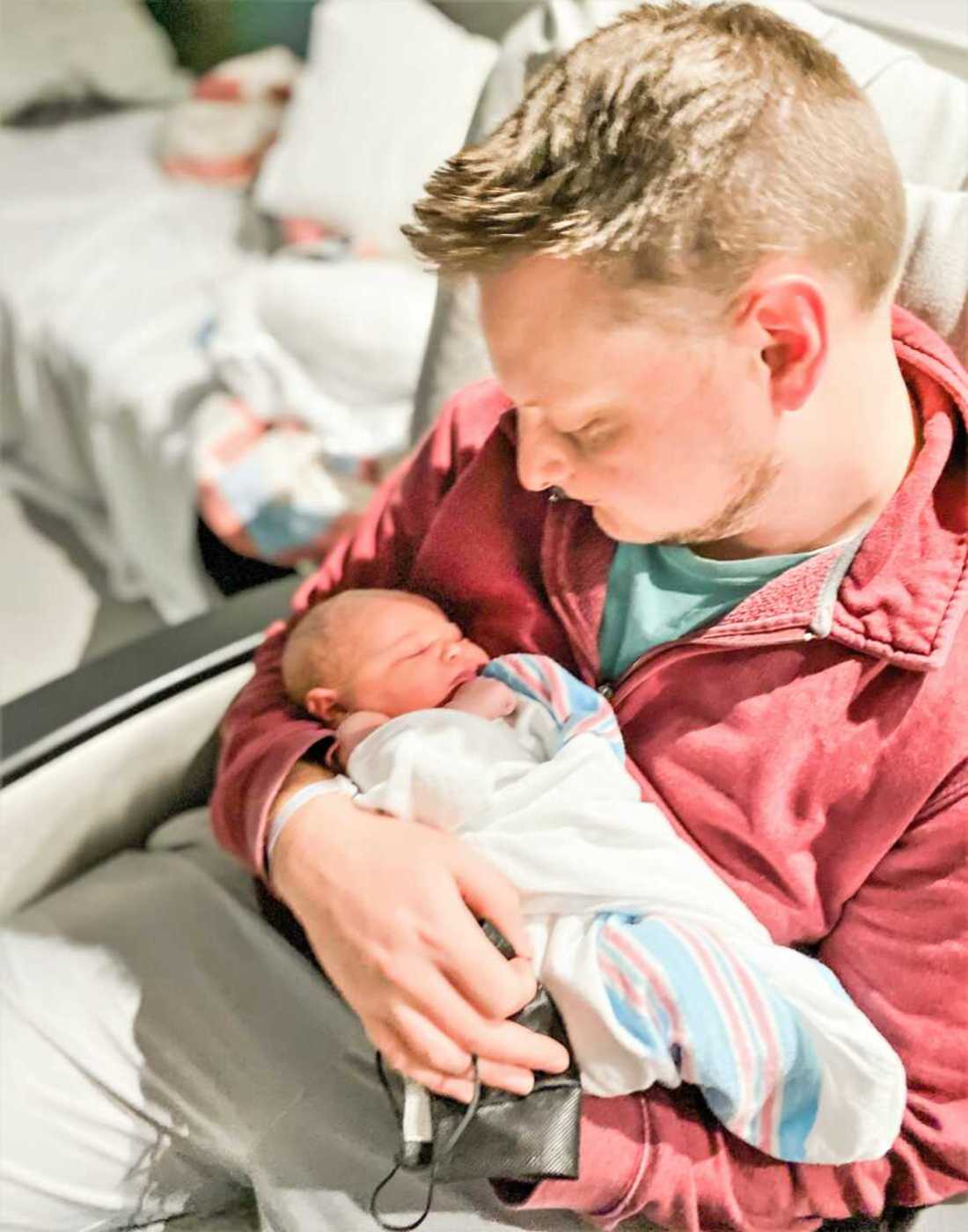
While my husband was and is always willing and ready to step in, I was rarely willing or ready to step out. Last night he put our baby to bed on his own so I could get my workout in for the day. Last weekend, I spent hours shopping with my mom while he stayed home with her. I came home refreshed and ready to take on the rest of the evening with a clear head.
I thought relinquishing full control to him at times was a form of failure, when in fact it was what has made me succeed. I feel so blessed to start each day excited for the day ahead with my daughter and confident I have the skills to be the best mother I can be for her.
If you think you have postpartum depression, I want you to know your awakening is coming.
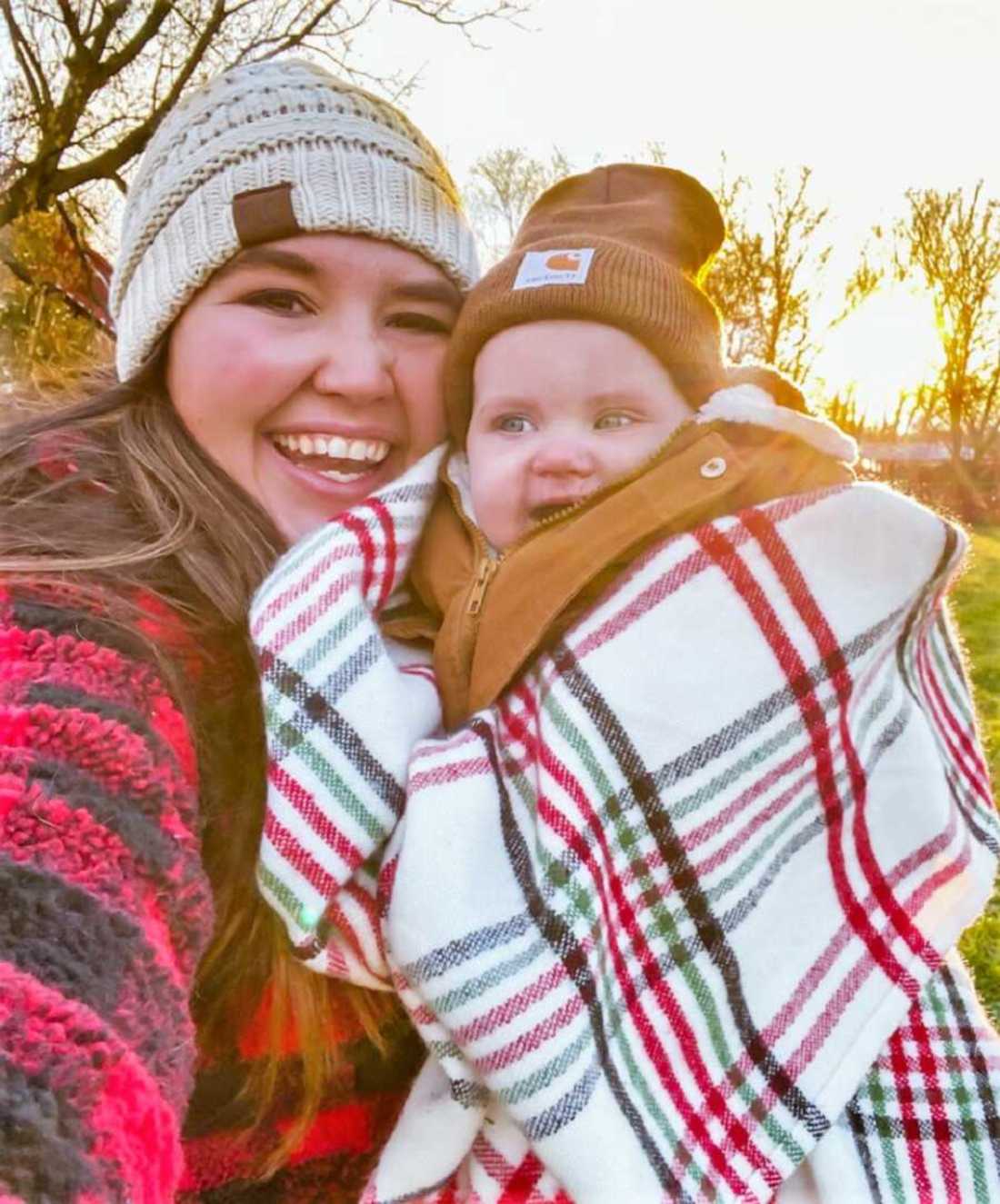
Doing all the things you know you should do is far too daunting to imagine right now, but if you can pick one and make it happen, you may be surprised at the domino effect it has. You need to talk to someone, preferably someone professional, but anyone will do. I can be the person for you if you don’t feel like you have anyone you’re comfortable with in your life.
What things can you do to make yourself truly happy, and how can you make them happen?
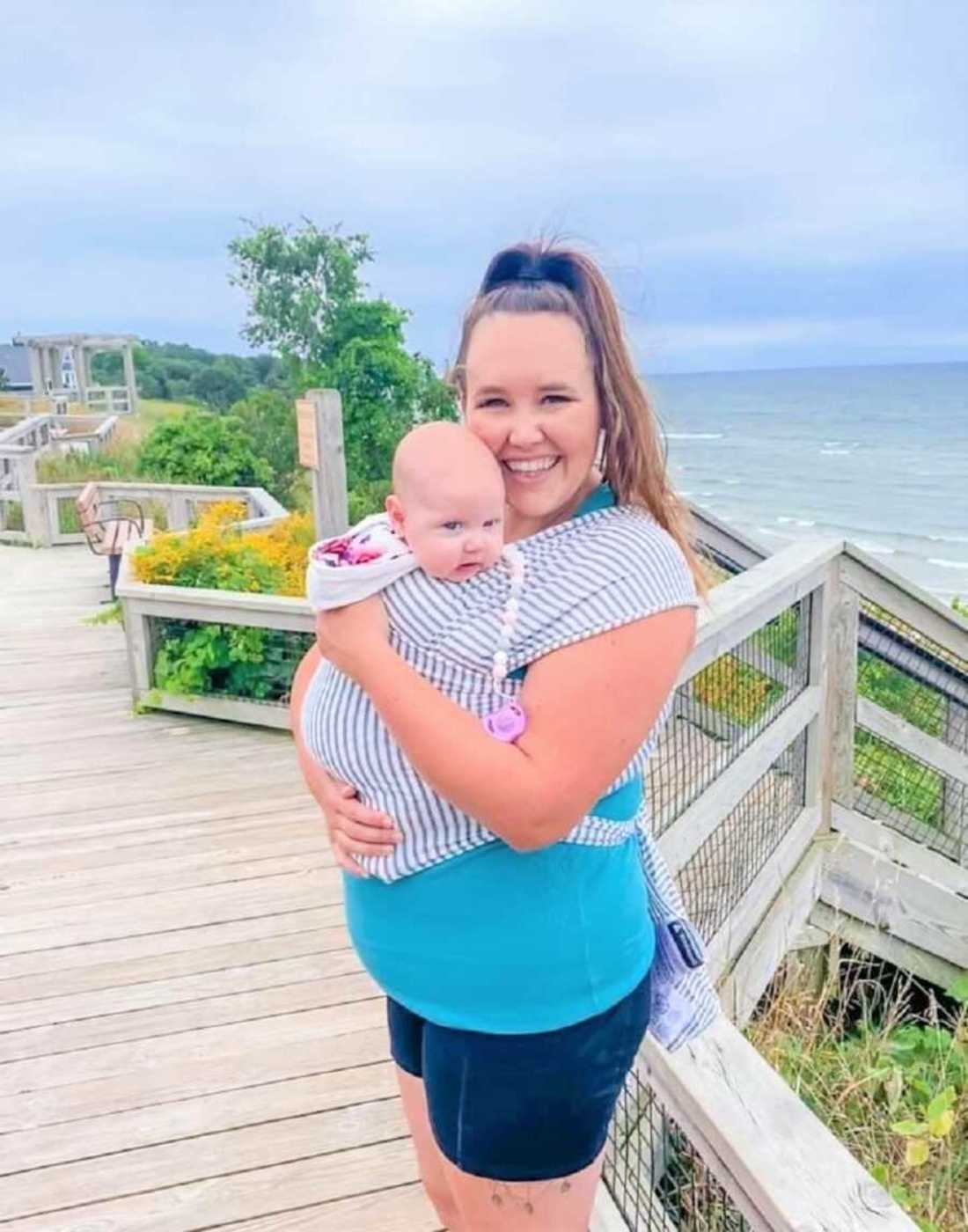
It may mean trusting in a partner or family member to take care of your baby while you take time away. It seems impossible, but it is completely necessary. I know what it feels like to be in the depths of despair and desperate to climb out so you can give your baby a happy healthy mama. I have overcome postpartum depression and I feel like I can finally be the mom I’ve always wanted to be.
This essay was republished with permission and was written by Nicole Eldridge of Lapeer, Michigan. You can follow her journey on Instagram and her blog.
